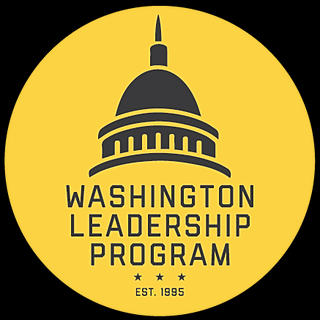Post WLP 2021: A Summer of Wisdom, Growth, and Clarity
- WLP
- Aug 31, 2021
- 3 min read
I came into the Washington Leadership Program eager to learn, grow, and transform as an individual. Eight weeks later, I am confident I have.
This summer, I interned with the Office of Civil Rights and Civil Liberties at the Department of Homeland Security. As an advocate for migrant rights, I was skeptical of the agency’s law enforcement operations yet eager to gain a federal-level perspective on immigration. Throughout my internship, I would directly engage in processes that sought to uphold civil rights and individual agency for immigrants and contributed to reform-driven proposals within the agency. Yet, in a system structured to target Black and Brown communities like my own, I initially felt unsettled and unsure if this was the avenue through which I could create social change.
Still, each experience is a learning opportunity. My experience working with DHS clarified my values and priorities as I plan my career. Moreover, by seeing the inner workings of the bureaucratic system, I have attained a better understanding of the channels through which I can create meaningful change. This experience has reignited my drive to advocate for immigrant community members in a way that prioritizes their safety, security, and autonomy.
My South Asian identity has and continues to shape the work I engage in today. It is a significant part of my lived experiences. It is what makes me, me. I entered this experience curious to learn how my intersectional South Asian identities as a Muslim, Pakistani American woman fit into the political space. More specifically, how can I continue to advocate for my communities and uplift marginalized voices in a space that has and continues to privilege white men? This is a question I continue to grapple with today, but WLP has taught me valuable lessons that inch me closer to uncovering the answer.

Lesson 1: Celebrate your story.
Bring your identities, experiences, and perspectives to the table. Amidst a group of individuals with backgrounds and experiences distinct from my own, I recognized the value in celebrating and cherishing my own story. Each member of the WLP 2021 cohort is unique in personality, background, upbringings, identities, and passions. Celebrating each of our diverse South Asian American histories while simultaneously seeking solace in our shared identities is one step we can take in shifting away within the dominant paradigms of our communities.

Lesson 2: Take up space and create space for yourself.
Taking up space for yourself is difficult but needed, especially within our community. Valuing and protecting South Asian American spaces is crucial for collective resistance and healing. We can reclaim parts of ourselves, redefine ourselves, and support one another in embracing who we are. The necessity of these spaces is particularly instrumental in the political sphere—not only for greater participation and representation, but also for the celebration of our community’s histories and impact within the US. WLP is an exemplar of how our community is actively creating space for the South Asian American leaders of tomorrow.

Lesson 3: Capitalize on the power of intercultural solidarity and allyship.
Cross-cultural solidarity and allyship across Black and Brown communities: a theme mentioned multiple times this summer, and one that continues to constitute a large part of my work. This experience has prompted me to think more introspectively in terms of how I show up in South Asian American spaces and how I can use my privileges to continue to advocate for marginalized communities. I feel motivated to strengthen my current work in fostering community amongst Black and Brown community members and actively take part in collective action towards liberation and justice.

Haadiya Ahmed




Comments